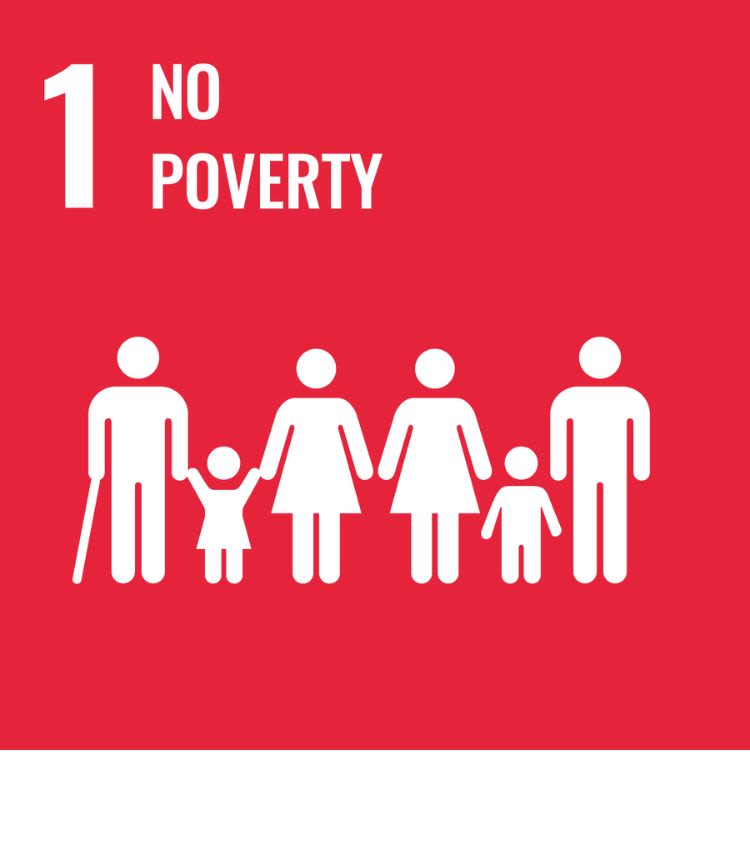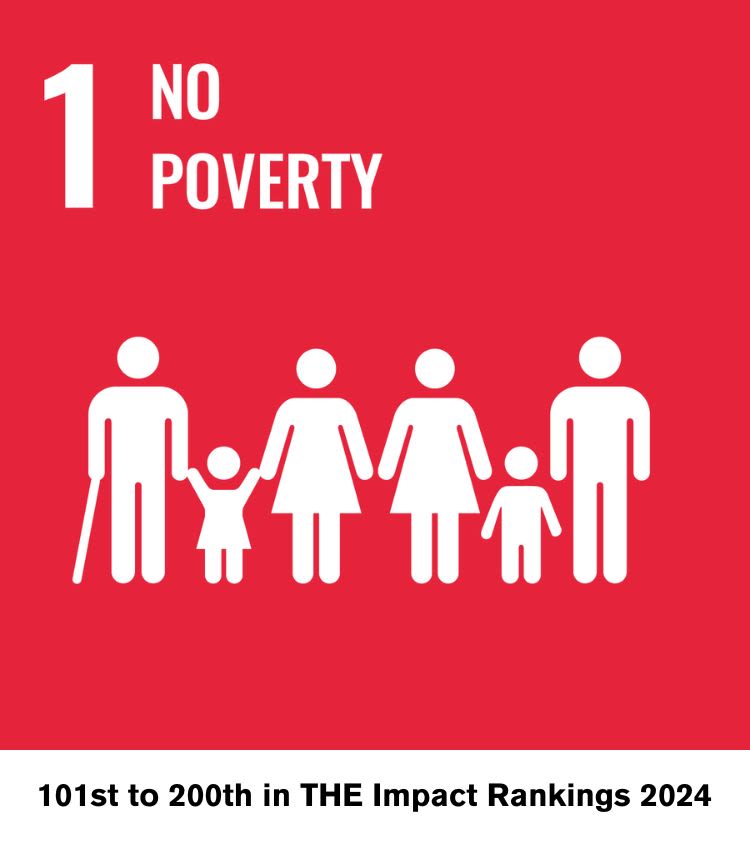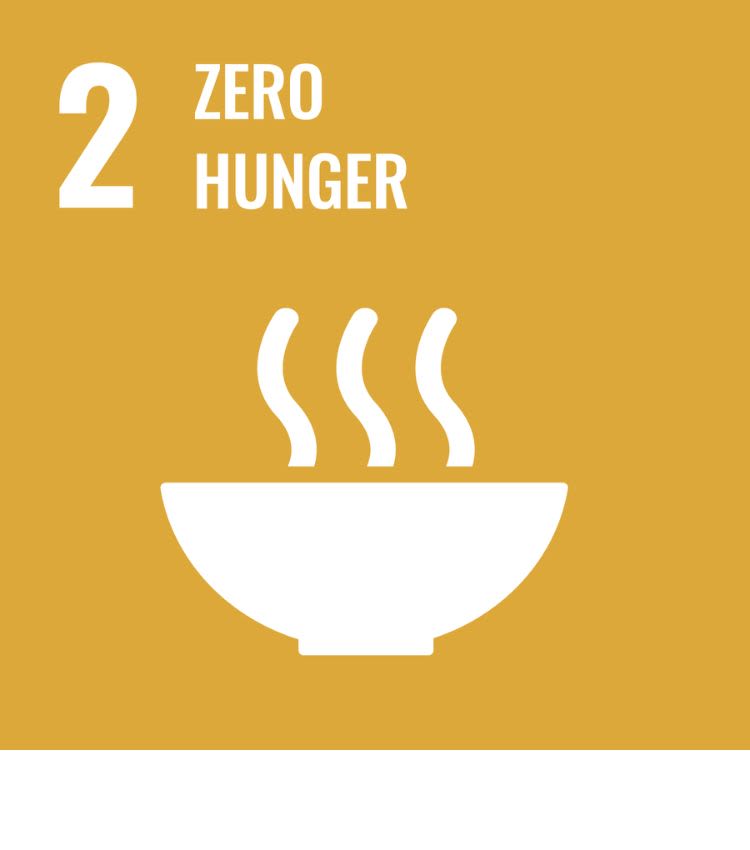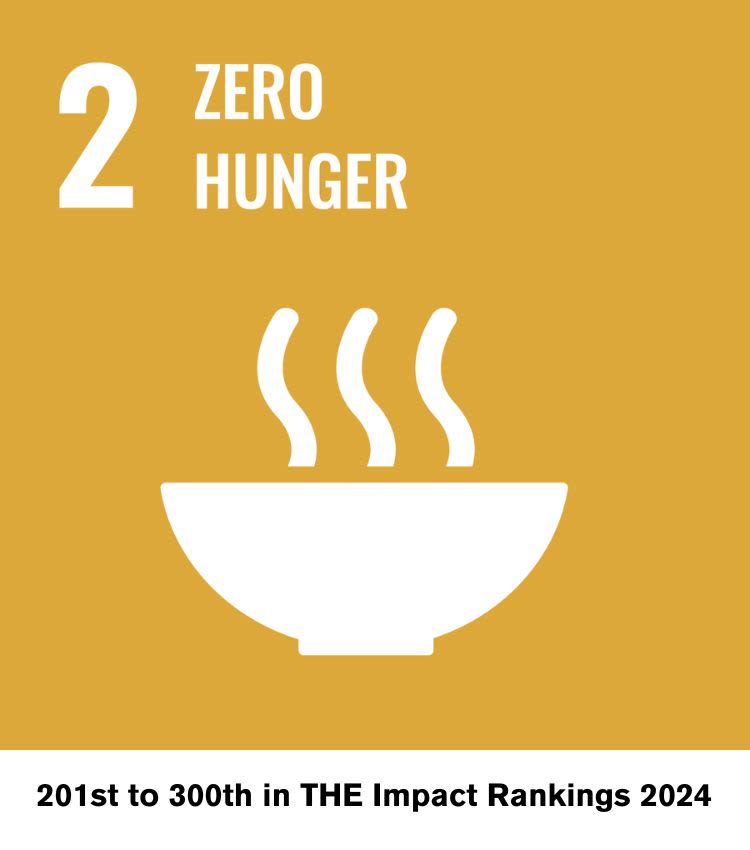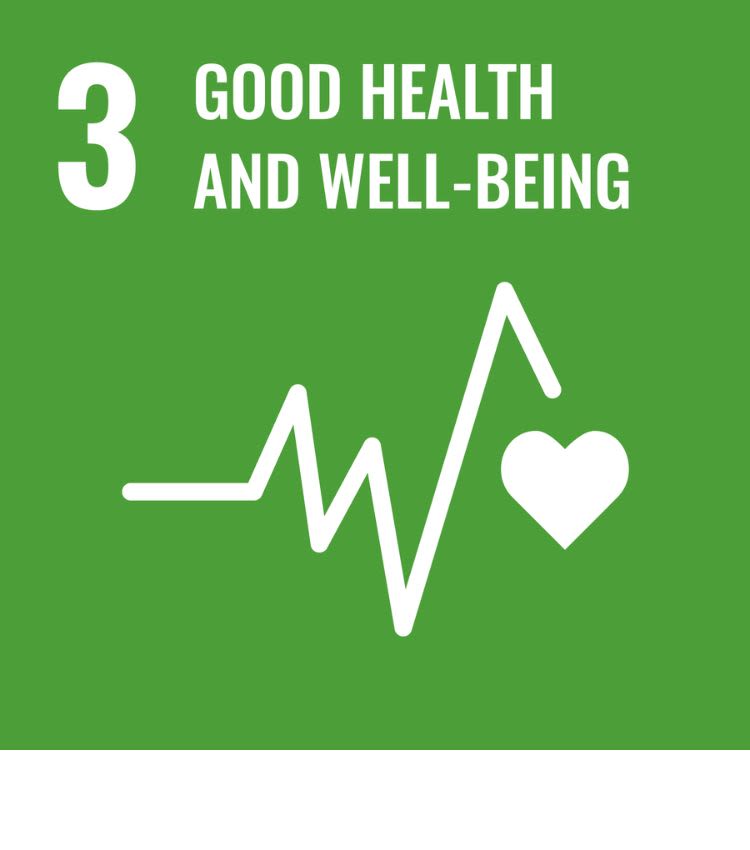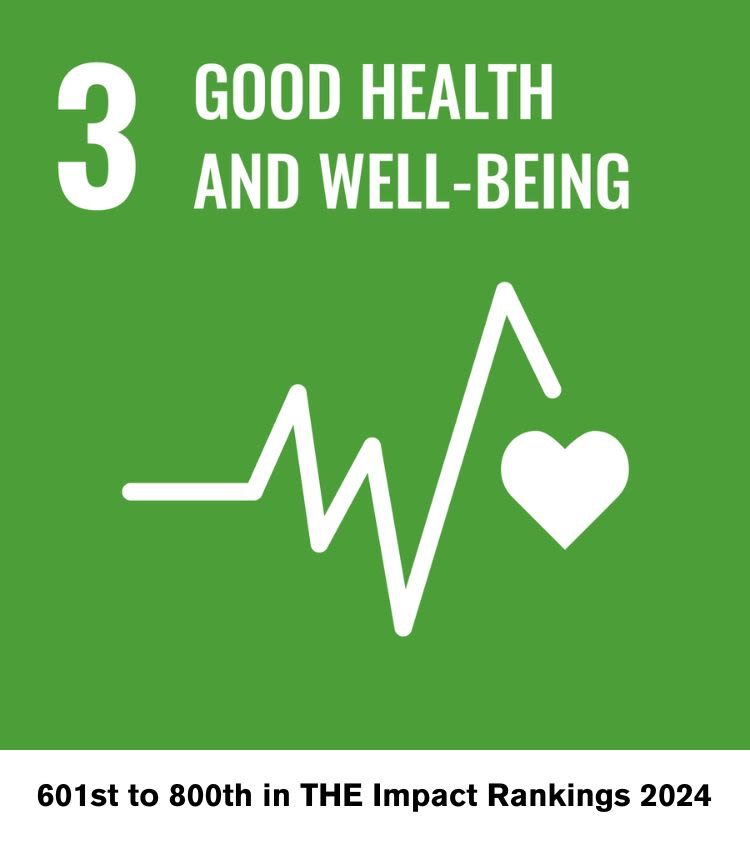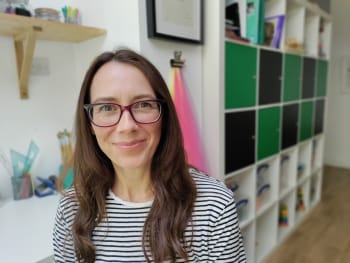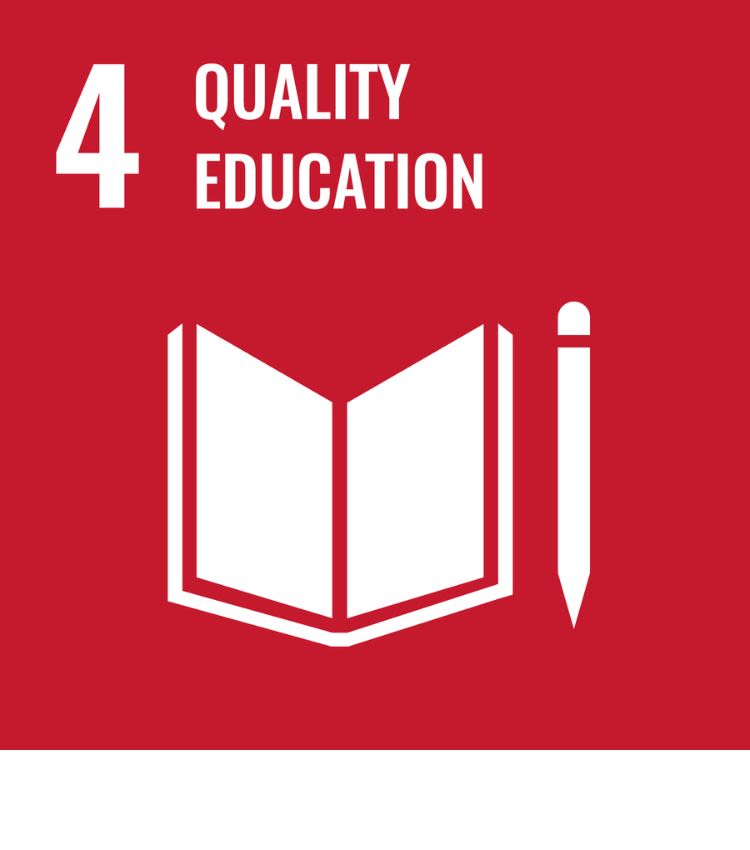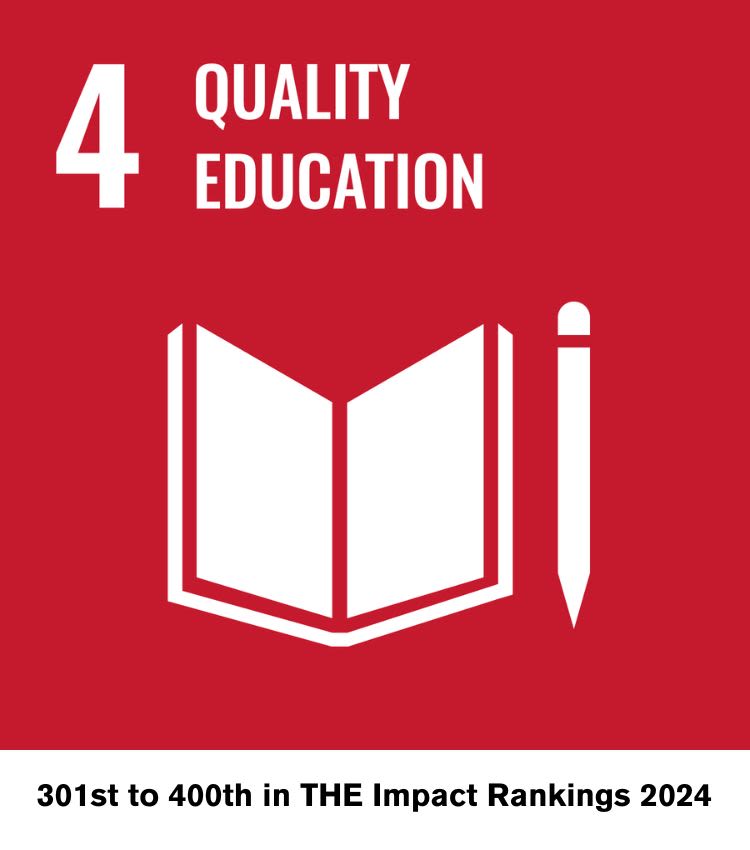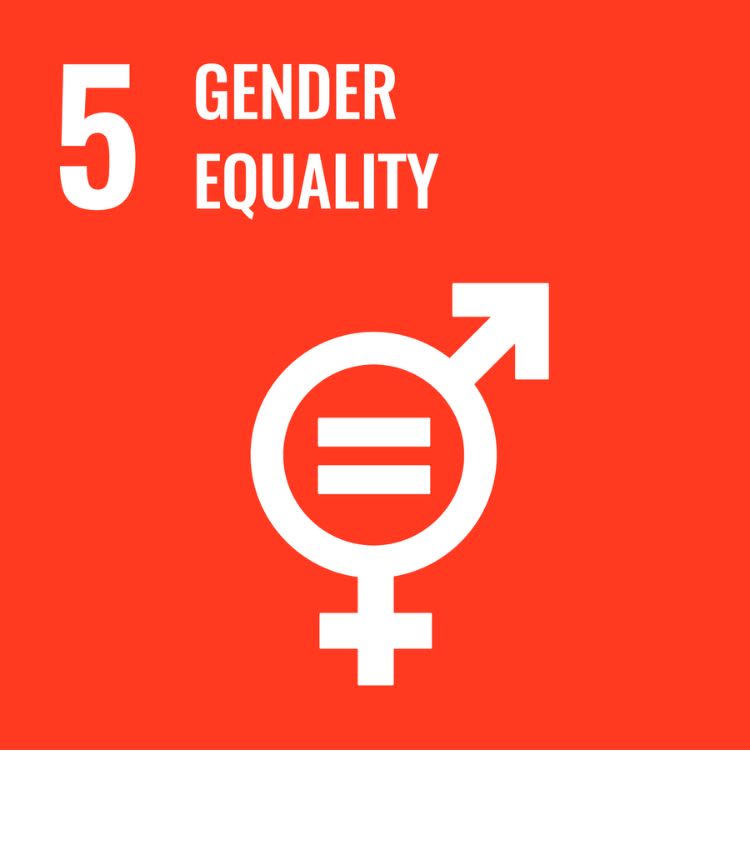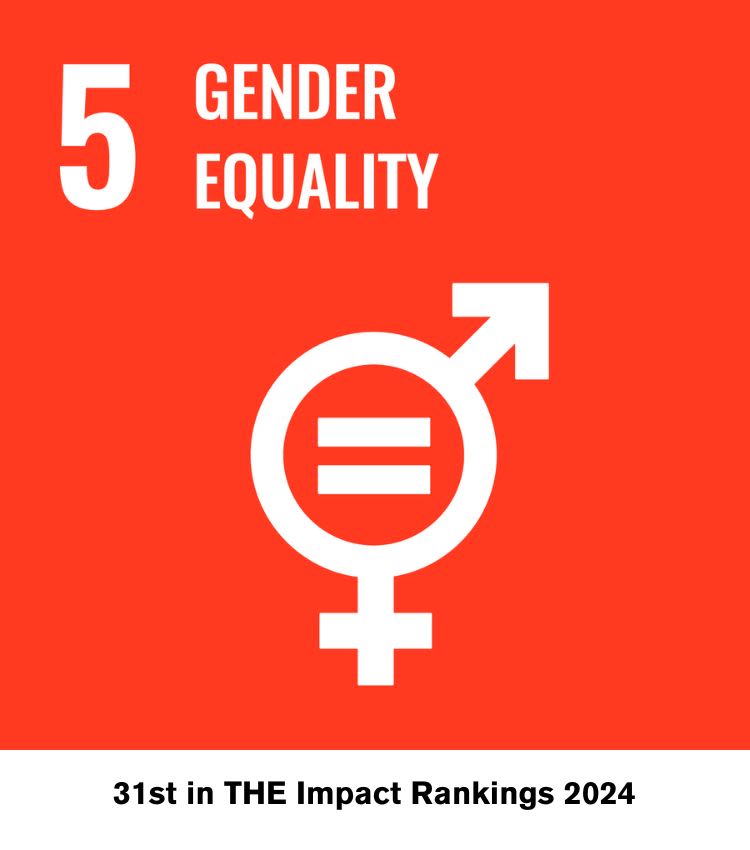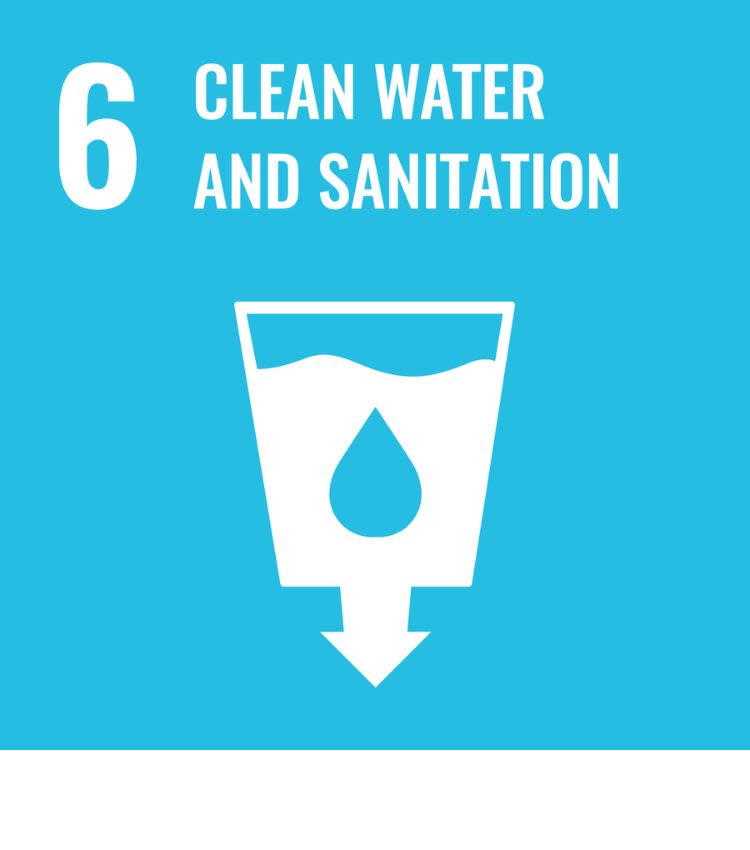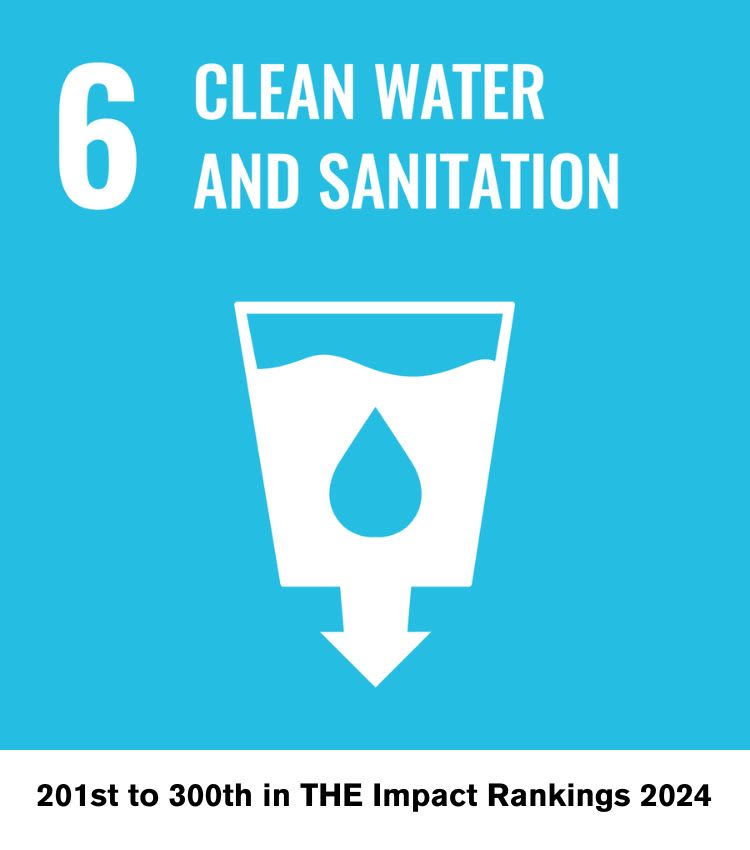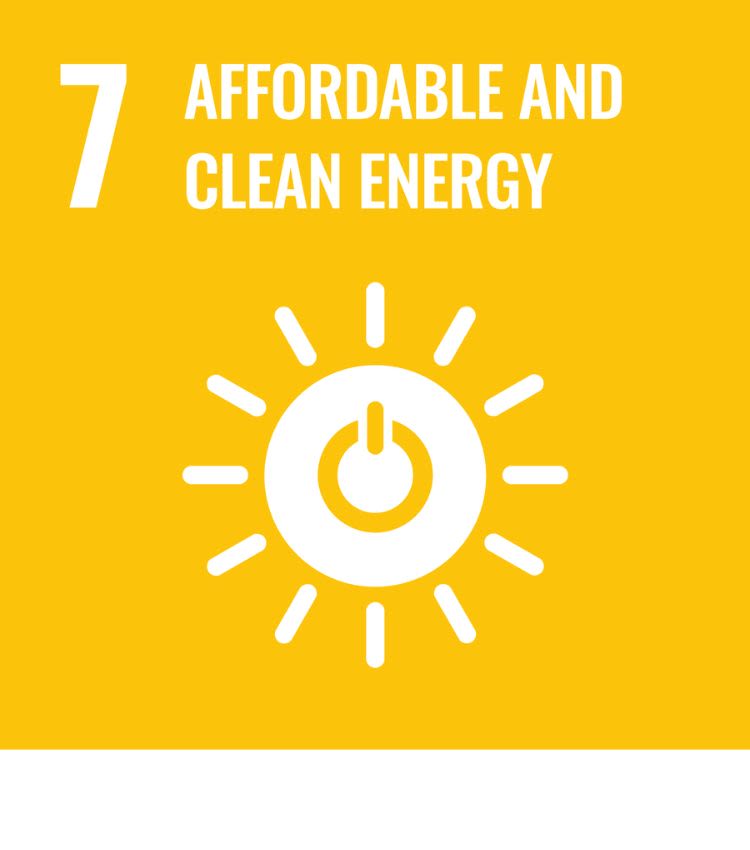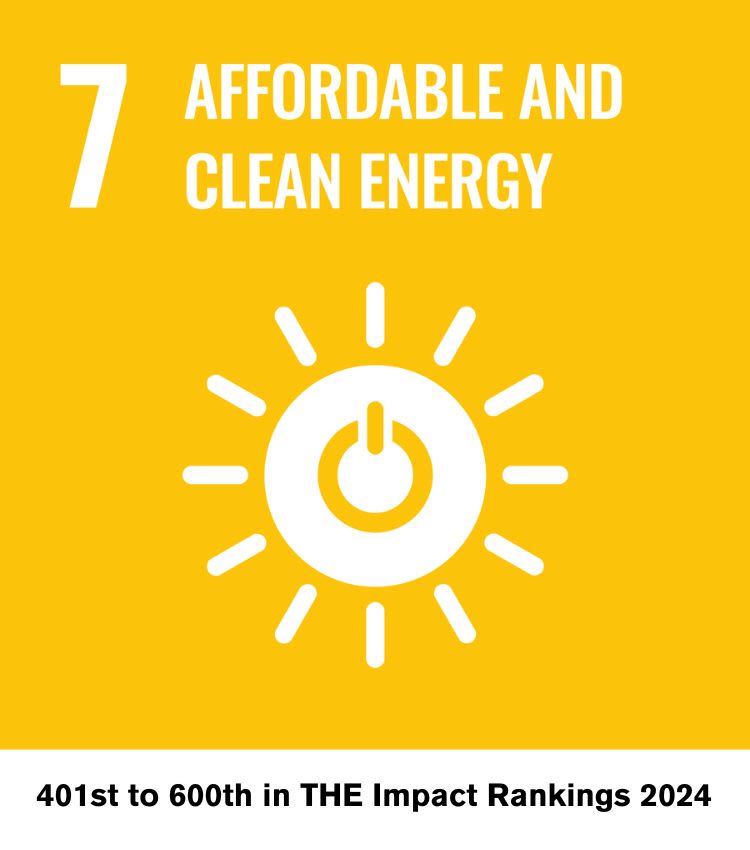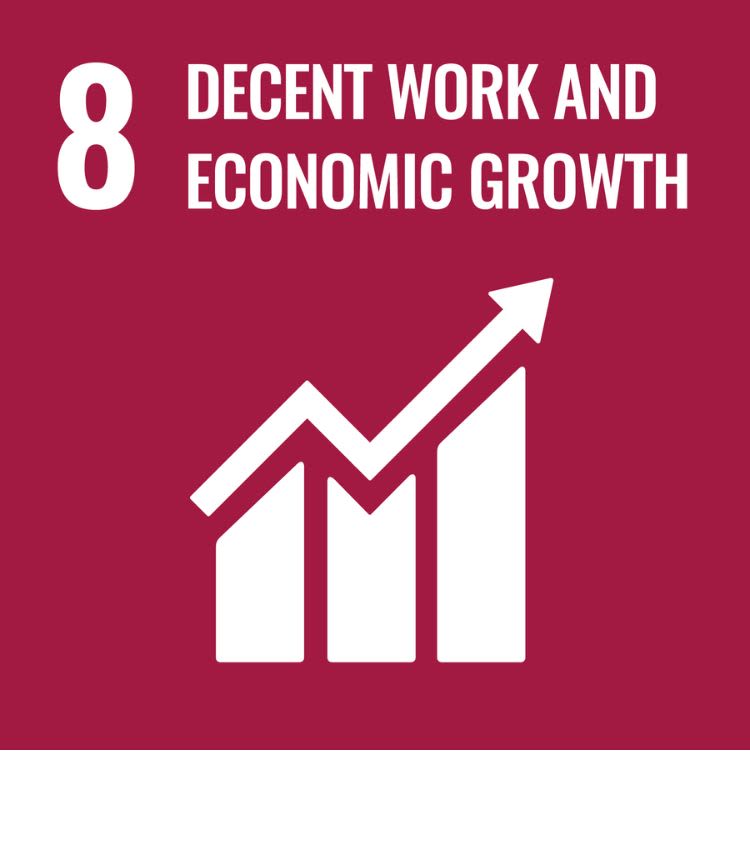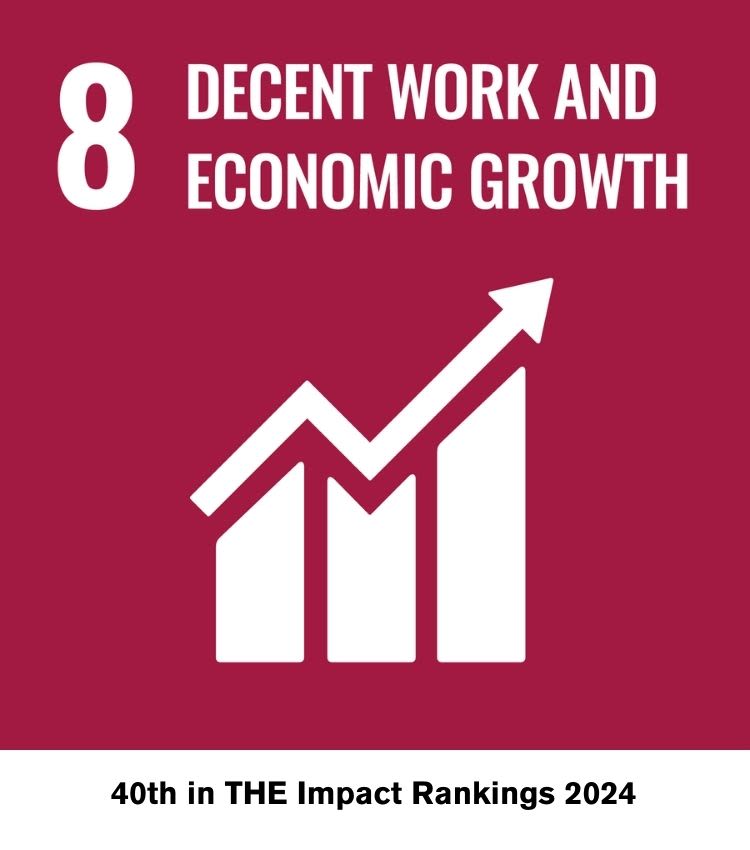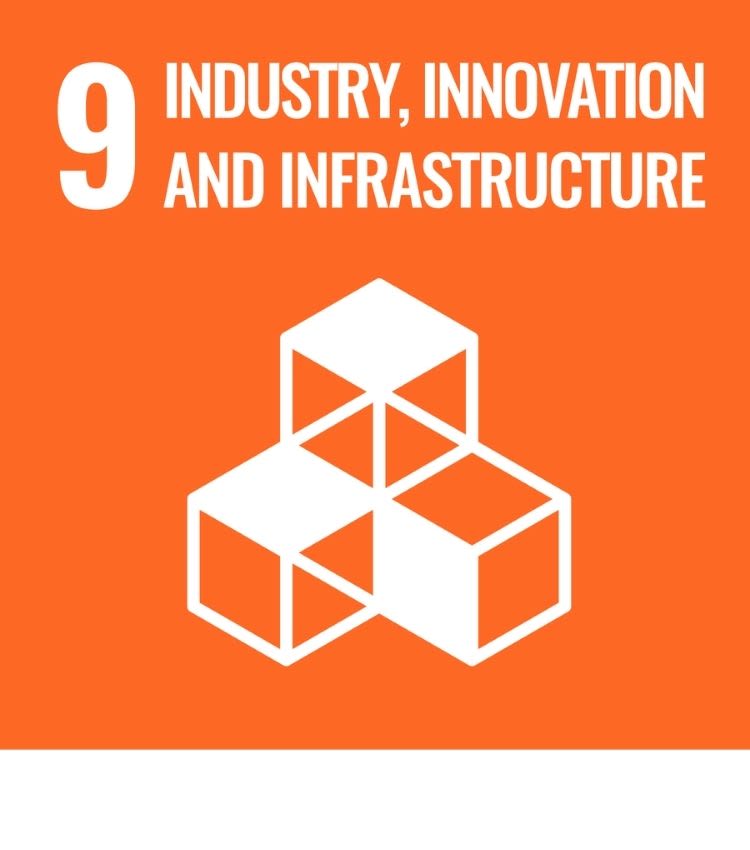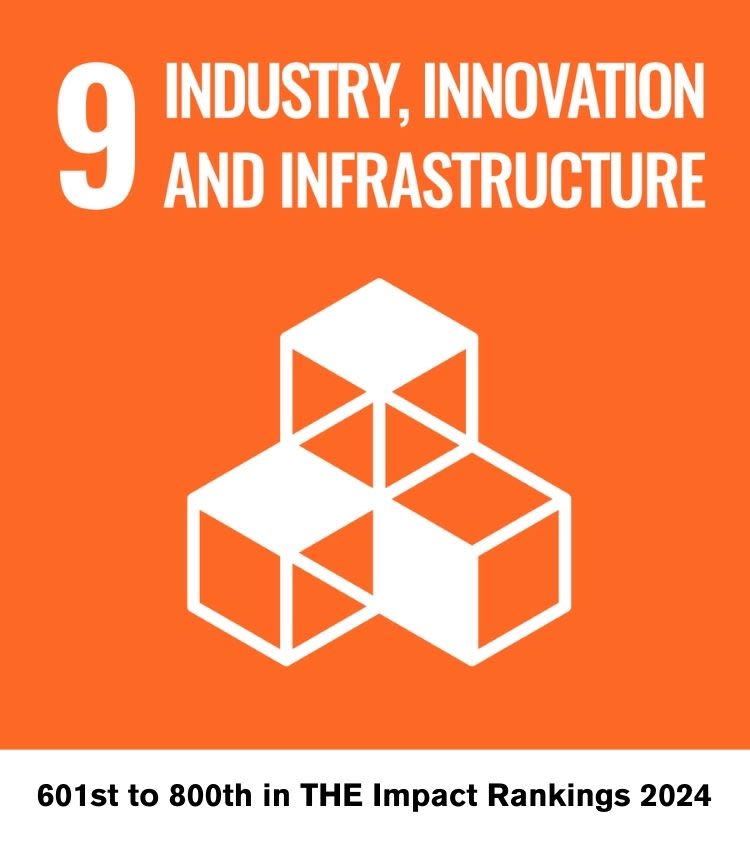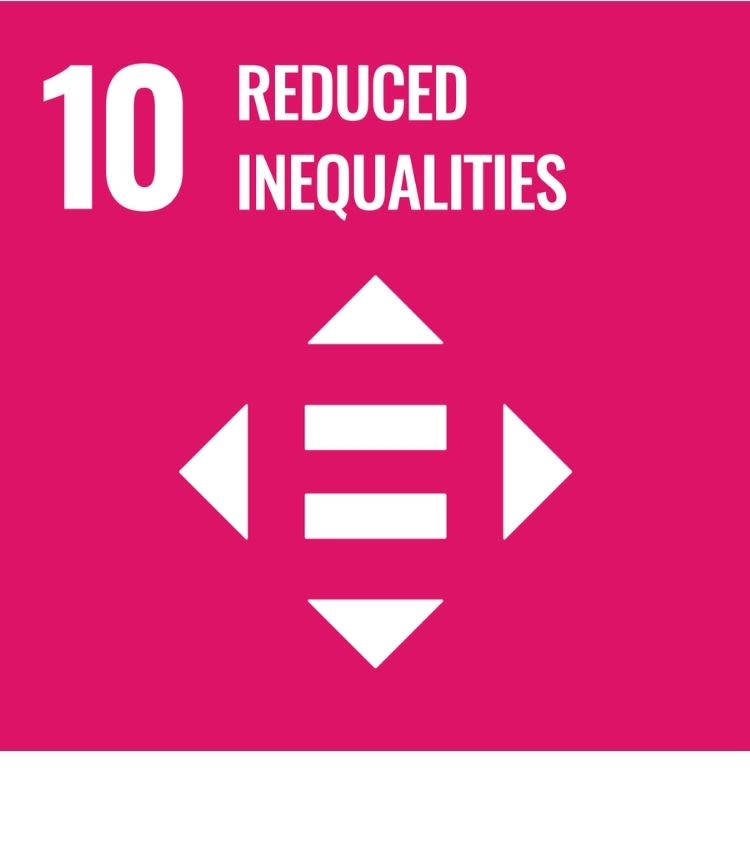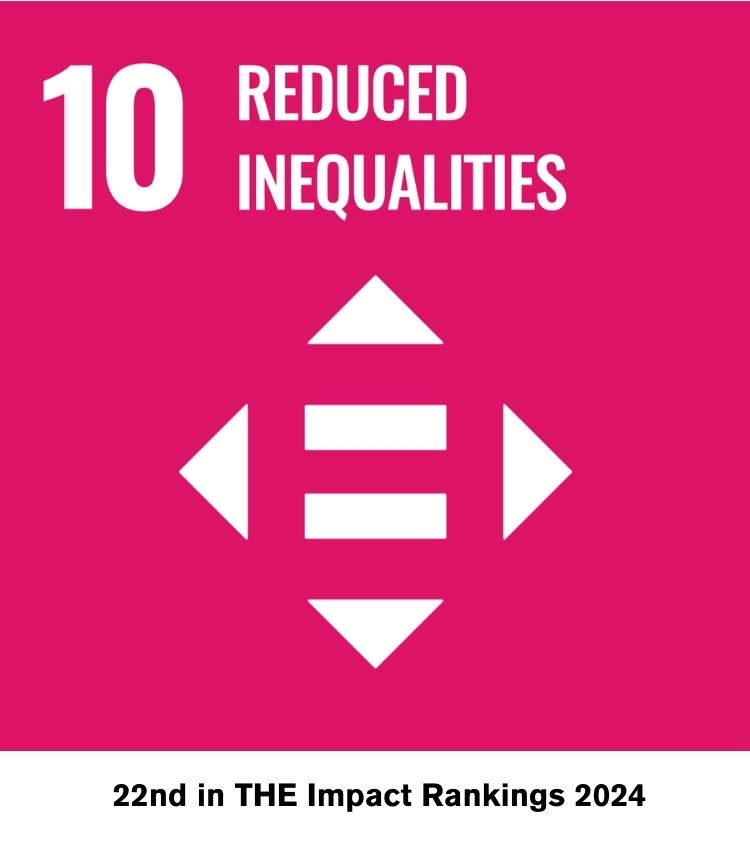SUSTAINABLE DEVELOPMENT GOALS REPORT 2024: UNIVERSITY OF ESSEX
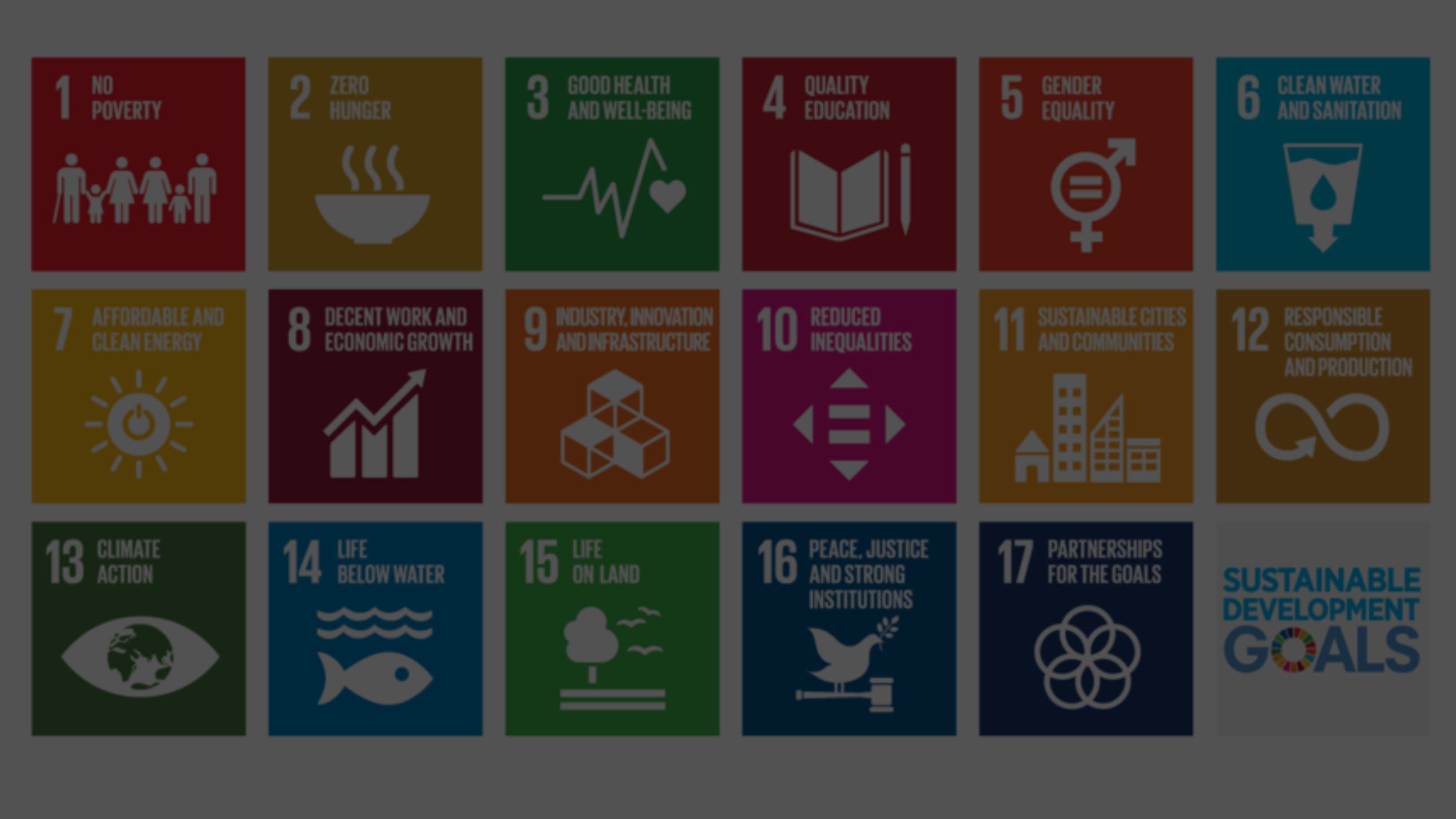
“Being ranked 58th in the Times Higher Education Impact Rankings 2024 was a really important moment for the University of Essex.”
“Our high ranking underlined our continuing commitment to sustainable development and specifically to the United Nations' 17 Sustainable Development Goals (SDGs).
“We are very proud to rank 22nd for SDG 10 – Reduced Inequalities, 28th for SDG 12 - responsible consumption, 31st for SDG 5 – Gender Equality, 40th for SDG 8 – Decent Work and Economic Growth, and 54th for SDG 13 – Climate Action.
“We want to do more, so we are investing in improving the carbon footprint of our campuses while continuing to innovate in our approach to education and research. Our latest report allows you to discover more about how we are rising to the challenges our world is facing.
“Our commitment to the SDGs carries through to the highest level. As UNESCO Chair in Analytics and Data Science, I work with UNESCO and international partners to promote the SDGs - particularly in the Global South - through education, skills training and capacity building in the crucial areas of data science and artificial intelligence.”
Professor Maria Fasli, Vice-Chancellor
- Read more about our approach to sustainability in our 60 Stories article
Measuring sustainable development
The mission of the University of Essex is: “Excellence in education and excellence in research for the benefit of people and communities”.
This is now our fourth Sustainable Development Report and it gives us a great insight into the breadth of our work across education and research supporting each of the United Nations Sustainable Development Goals (SDGs).
We are among 300+ global signatories of the SDG Accord which focuses on SDG 17 - Partnerships for the Goals and looks to revitalise the global partnership for sustainable development. As a result, we are committed to embedding SDGs into our education, research, leadership, operations, administration, and engagement activities.
Our report includes separate sections for each of the 17 Sustainable Development Goals (SDGs), each providing information, data and examples of our work. We are a diverse and productive university so measuring the relevance of our research and education is complex. For clarity, we provide full details of the methodology we have used in our fourth report to measure sustainable development at the University of Essex.
SDG 1: END POVERTY IN ALL ITS FORMS EVERYWHERE
Research
|
Publication Record |
Method SDSN |
Method Elsevier |
|---|---|---|
|
All articles |
3,805 |
61 |
|
Open Access |
2,584 |
39 |
|
Citations |
73,237 |
671 |
|
H-Index |
101 |
16 |
Education
|
SSDN Relevant Degrees |
SDSN Student Engagements |
Elsevier Relevant Degrees |
Elsevier Student Engagements |
|---|---|---|---|
|
893 |
14,404 |
88 |
877 |
Case Study: SDG 1 - No Poverty
Researchers at Essex are informing policy on tackling poverty.
The UK Parliament has published two briefings on housing insecurity in the private rented sector in England, citing recent work by the ESRC Research Centre on Micro-Social Change based at Essex.
Led by Dr Amy Clair and Professor Meena Kumari, with Professor Emma Baker from the University of Adelaide, the studies identified the impact and policy implications.
The research found:
- Living in a privately rented home is associated with faster biological ageing
- The impact of renting in the private sector, as opposed to outright ownership (with no mortgage), was almost double that of being out of work rather than being employed
- It was also 50% greater than having been a former smoker as opposed to never having smoked
- Repeated housing arrears, and exposure to pollution/environmental problems, are also associated with faster biological ageing
- Living in social housing, with its lower cost and bgreater security of tenure, has no impact on biological ageing
- These effects are reversible – showing policy change can make a difference
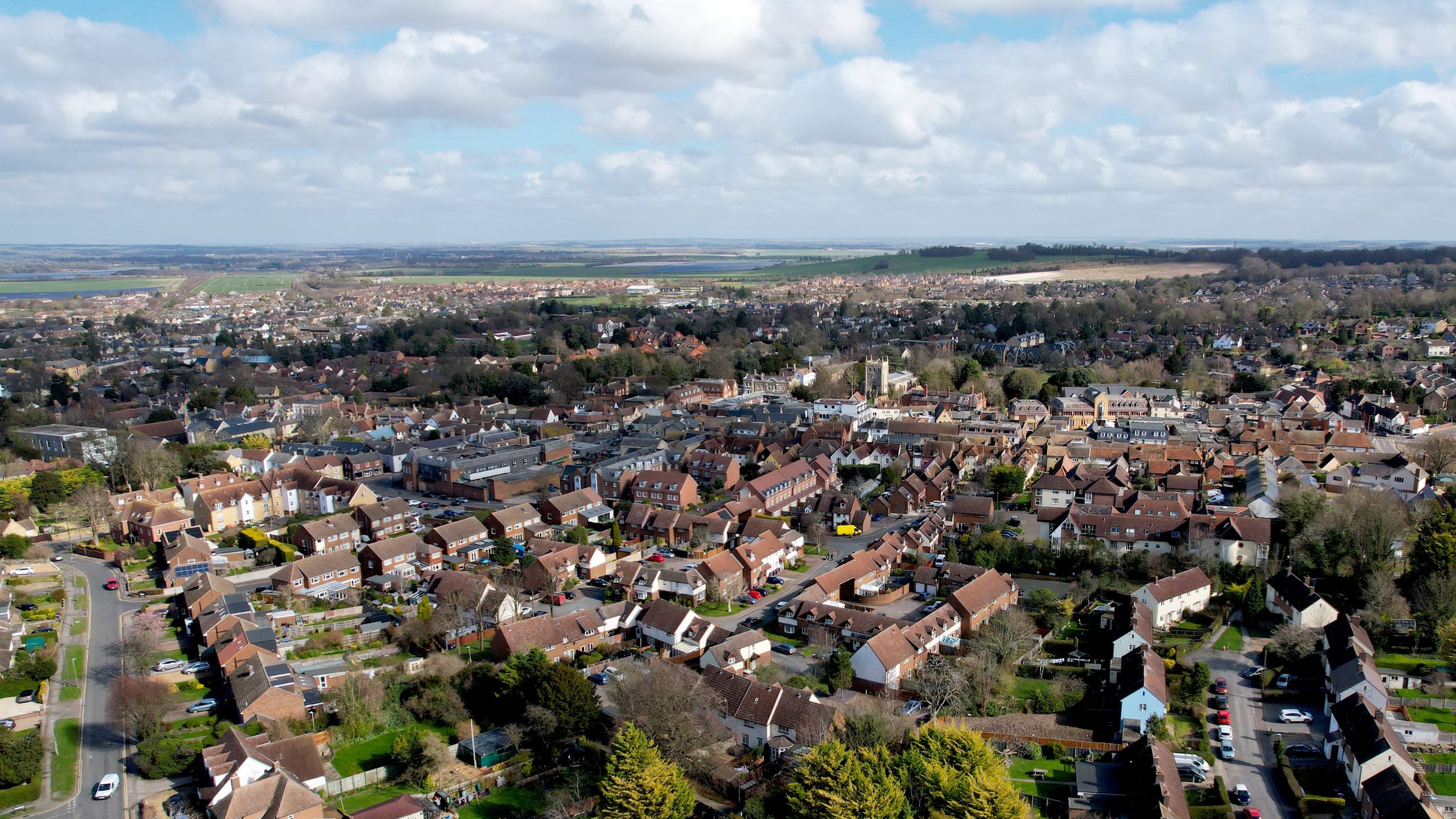
SDG 2: END HUNGER, ACHIEVE FOOD SECURITY AND IMPROVED NUTRITION AND PROMOTE SUSTAINABLE AGRICULTURE
Research
|
Publication Record |
Method SDSN |
Method Elsevier |
|---|---|---|
|
All articles |
2,754 |
96 |
|
Open Access |
1,941 |
68 |
|
Citations |
70,017 |
3,182 |
|
H-Index |
101 |
28 |
Education
|
SSDN Relevant Degrees |
SDSN Student Engagements |
Elsevier Relevant Degrees |
Elsevier Student Engagements |
|---|---|---|---|
|
893 |
14,404 |
88 |
877 |
Case Study: SDG 2 - Zero Hunger
A unique £3m plant lab will put researchers on the frontline in the fight against climate change and create crops for “tomorrow’s atmosphere today”.
The new flagship facility at Essex will allow scientists to adapt plants for a hotter drier planet as food security is increasingly threatened.
The new lab boasts a cutting-edge commercially standard vertical farm, an indoor field that replicates real environments anywhere in the globe, and suites that imitate a warming world – with researchers able to raise CO2 concentration and temperature levels at will.
Computer plant scanning technology will also be used to monitor plants as they grow – and pinpoint precise changes in photosynthesis.
The research will be underpinned by AI and robotics that will develop new ideas, technologies, and strategies to predict how agriculture and the natural world are changing.
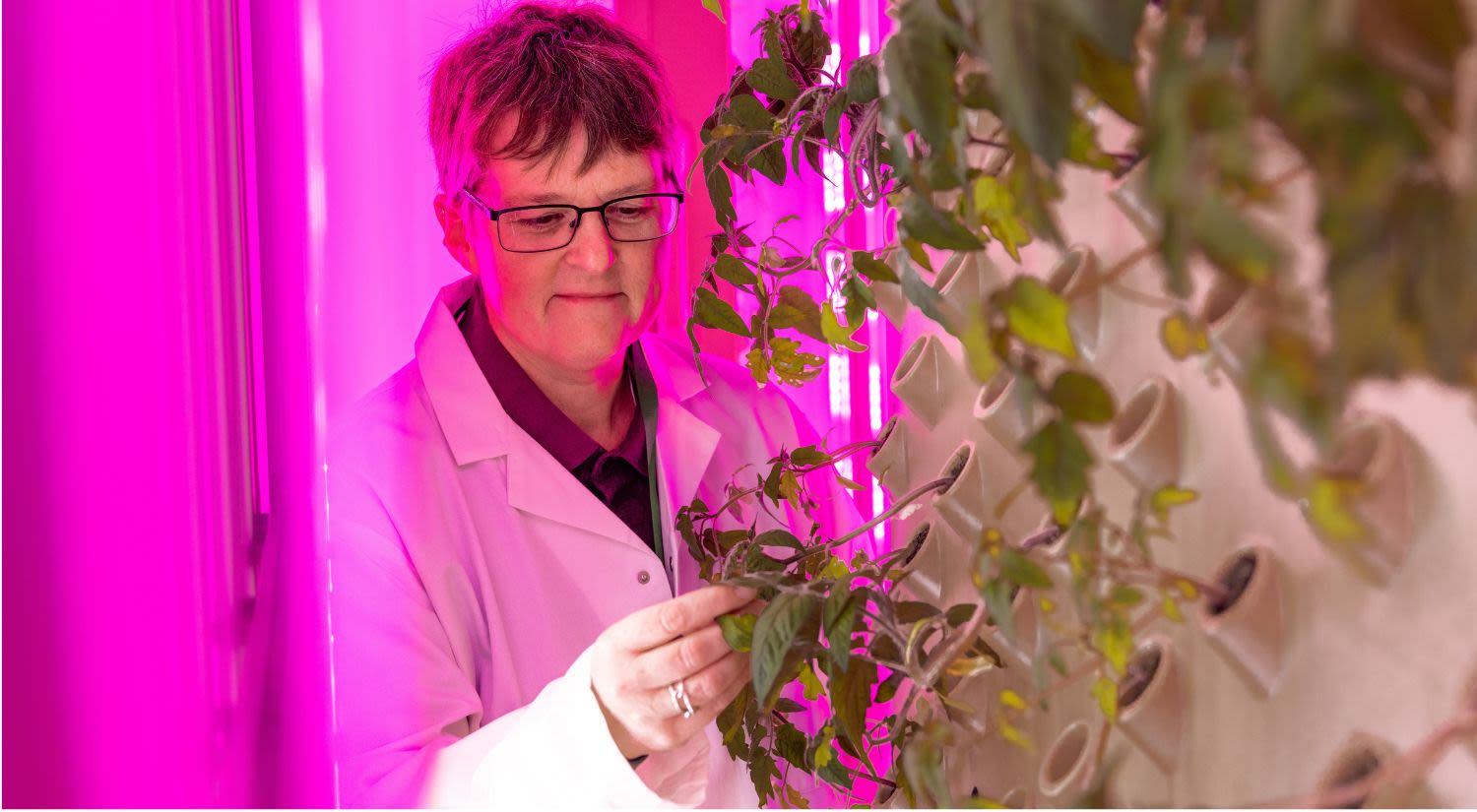
SDG 3: TO ENSURE HEALTHY LIVES AND PROMOTE WELL-BEING FOR ALL AT ALL AGES
Research
|
Publication Record |
Method SDSN |
Method Elsevier |
|---|---|---|
|
All articles |
2,362 |
1,880 |
|
Open Access |
1,968 |
1,510 |
|
Citations |
51,201 |
42,439 |
|
H-Index |
94 |
87 |
Education
|
SSDN Relevant Degrees |
SDSN Student Engagements |
Elsevier Relevant Degrees |
Elsevier Student Engagements |
|---|---|---|---|
|
893 |
14,404 |
88 |
877 |
Case Study: SDG 3 - Good Health and Well-being
The University of Essex is training a new generation of fully qualified therapists and counsellors. Inspired by their experience at Essex, some are setting up their own therapeutic practices and helping to train future professionals.
The Masters in Psychodynamic Counselling and Psychotherapy course, delivered by the Department of Psychosocial and Psychoanalytic Studies, is making a growing impact on our communities.
Over the past 10 years, more than 100 students have become professionally qualified counsellors and in the next three years another 100 will join them – making a bigger and bigger difference in their communities.
Even during their studies students are making a difference by taking part in a whole range of placements.
After completing her studies, Kate Beckwith set up her own pioneering therapeutic practice for children, adolescents, and their families. Set in a private woodland on the outskirts of Colchester, Kate’s Garden is the only practice of its kind in the country.
She said: “The MA in Psychodynamic Counselling and Psychotherapy at Essex was a completely transformative experience that profoundly impacted my personal and professional life."
- Read our 60 Stories article: Training Counsellors of the Future
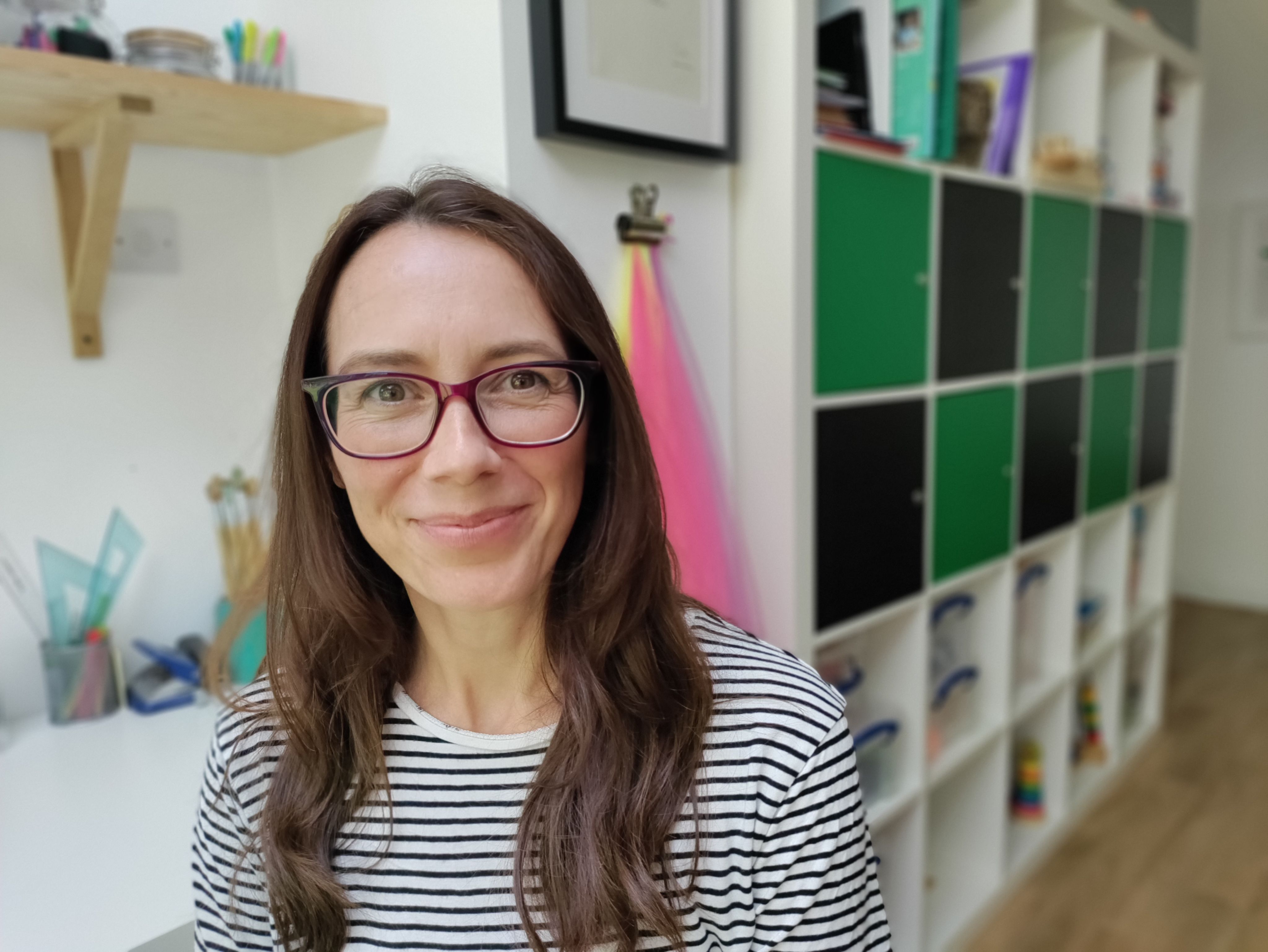
SDG 4: ENSURE INCLUSIVE AND EQUITABLE EDUCATION AND PROMOTE LIFELONG LEARNING OPPORTUNITIES FOR ALL
Research
|
Publication Record |
Method SDSN |
Method Elsevier |
|---|---|---|
|
All articles |
1,645 |
35 |
|
Open Access |
1,138 |
26 |
|
Citations |
28,093 |
456 |
|
H-Index |
70 |
12 |
Education
|
SSDN Relevant Degrees |
SDSN Student Engagements |
Elsevier Relevant Degrees |
Elsevier Student Engagements |
|---|---|---|---|
|
893 |
14,404 |
88 |
877 |
Case Study: SDG 4 - Quality Education
More than 100 teenagers explored green careers by building wind turbines, investigating animal smuggling and even eating insects.
Students learnt from researchers and eco experts as part of the annual event hosted by the University of Essex to mark Green Careers Week.
Youngsters aged 14 to 17 from Clacton County High School, Clacton Coastal Academy, Colchester Institute, Colchester Academy and the Sixth Form College enjoyed the interactive workshops.
The Greenest Generation event was organised by the University’s Outreach team to show teenagers how they can fight the climate crisis.
Presentations included the School of Life Sciences showing how to clean up oil spills and staff from Colchester Zoo explaining how rare animal pelts were traded by villains on the black market.
The event was part of a bigger NHS project funded by the Suffolk and North East Essex Integrated Care Board to showcase green skills.
Organiser Olivia Solanke, Outreach Officer, said: “We really wanted to show them how they can make a difference in the world and I’m so proud of the teams from our own School of Life Sciences and Sustainability department in addition to the Galloper Wind Farm, Colchester Zoo, Writtle College and Adult Learning Community.”
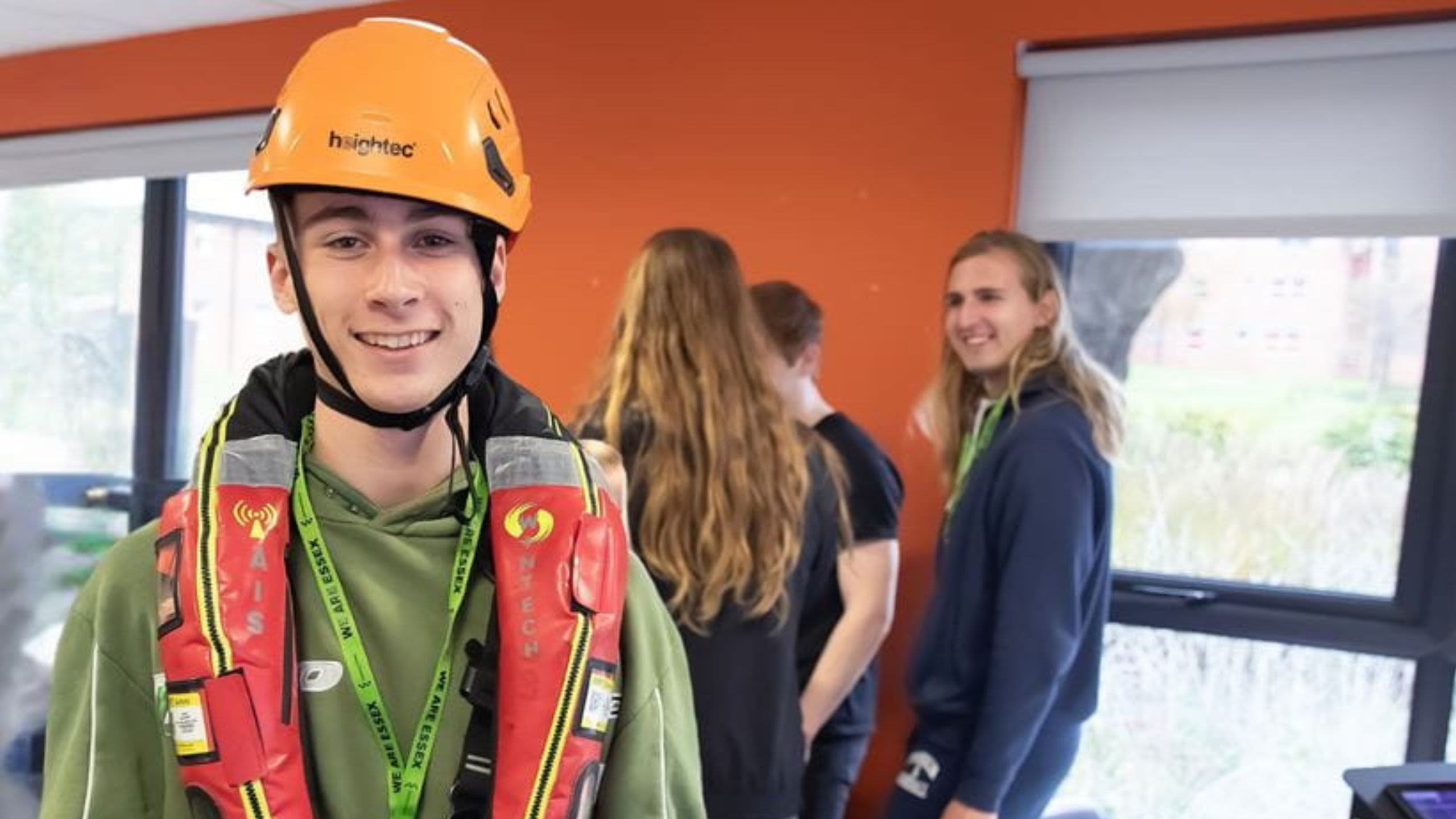
SDG 5: ACHIEVE GENDER EQUALITY AND EMPOWER ALL WOMEN AND GIRLS
Research
|
Publication Record |
Method SDSN |
Method Elsevier |
|---|---|---|
|
All articles |
1,999 |
143 |
|
Open Access |
1,308 |
102 |
|
Citations |
31,283 |
1,779 |
|
H-Index |
74 |
24 |
Education
|
SSDN Relevant Degrees |
SDSN Student Engagements |
Elsevier Relevant Degrees |
Elsevier Student Engagements |
|---|---|---|---|
|
893 |
14,404 |
88 |
877 |
Case Study: SDG 5 - Gender Equality
Translation and interpreting expert Dr Natalia Rodríguez Vicente is leading an international project to help early career researchers in Kenya with their academic publications.
Funded by the British Academy Official Development Assistance initiative, the project involves experienced academics and journal editors offering Kenyan researchers mentoring and guidance.
Researchers in Kenya face several challenges that obstruct their ability to publish in prestigious international journals, such as limited resources, lack of time due to teaching responsibilities, access to research funding and opportunities to network with international peers.
Despite progressive government policies aimed at gender parity in education, there is still a stark gender imbalance within academia in Kenya. Women academics are currently significantly under-represented in leadership positions despite making up a third of academic staff across the public chartered universities in Kenya. To overcome this, the project is aiming to ensure a significant number of participants are women.
Dr Rodríguez Vicente, from Essex’s Department of Language and Linguistics, said: “Success in academia often creates a ripple effect so early achievements, particularly in terms of high-quality publications, can lead to a series of positive outcomes such as increased visibility, higher chances to secure research grants and overall career advancements.”
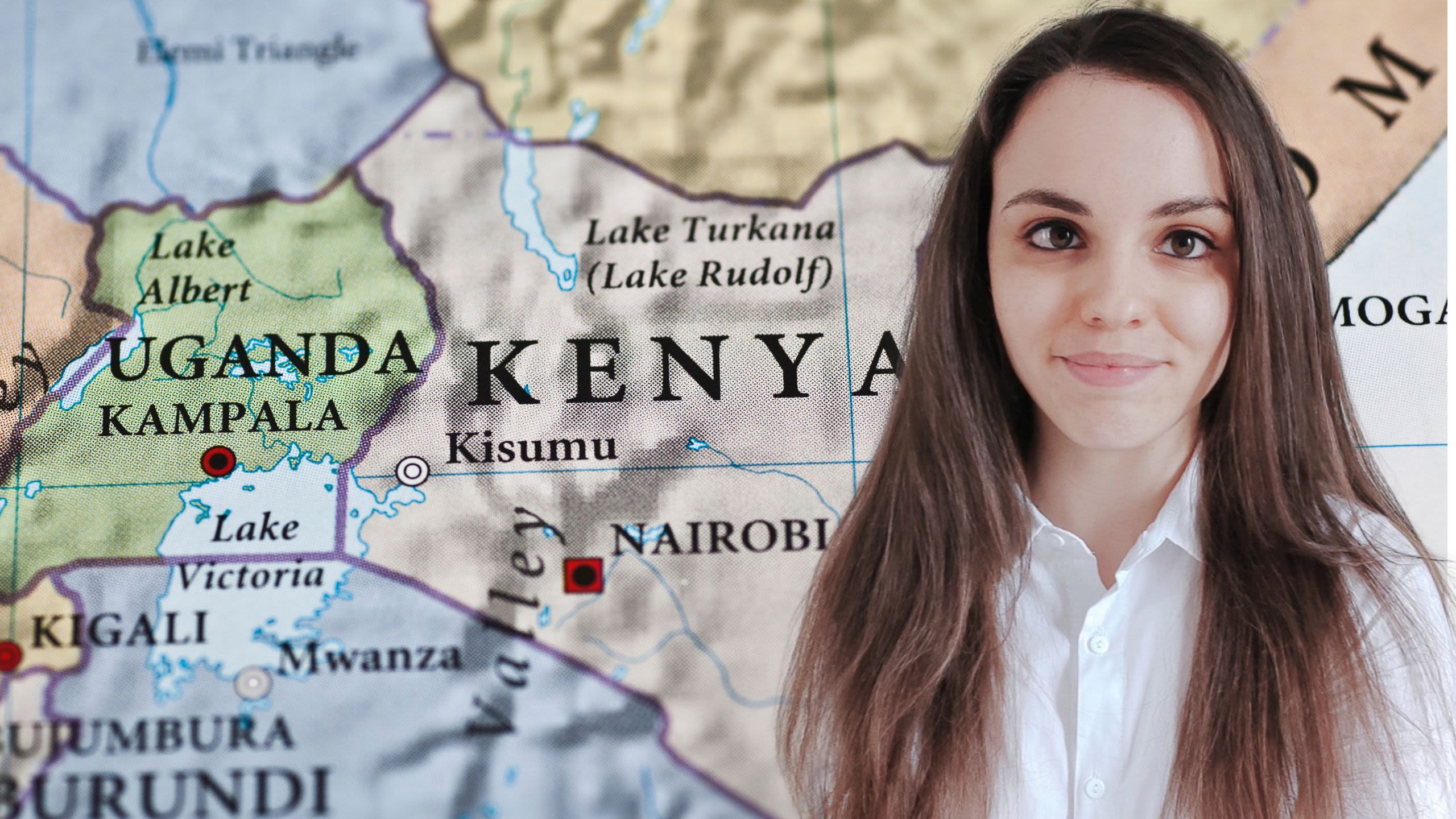
SDG 6: ENSURE AVAILABILITY AND SUSTAINABLE MANAGEMENT OF WATER AND SANITATION FOR ALL
Research
|
Publication Record |
Method SDSN |
Method Elsevier |
|---|---|---|
|
All articles |
1,065 |
26 |
|
Open Access |
698 |
15 |
|
Citations |
24,136 |
328 |
|
H-Index |
72 |
10 |
Education
|
SSDN Relevant Degrees |
SDSN Student Engagements |
Elsevier Relevant Degrees |
Elsevier Student Engagements |
|---|---|---|---|
|
893 |
14,404 |
88 |
877 |
Case Study: SDG 6 - Clean Water and Sanitation
The stunning Winter Garden at the heart of Essex Business School is part of the University of Essex's sustainable approach to managing water.
The pond at the centre of Essex Business School (near the central stairwell) actually collects rainwater that is then used to irrigate the wonderful range of plants which flourish under the Garden's iconic domed roof.
Alongside encouraging responsible use of water, the University has a number of additional projects in place. The Grounds team invested in a Clear Water Wash Pad to reduce the amount of mains water they were using on cleaning their tools and vehicles. The recycled water system stores rainwater in a 5,000 litre underground tank, while the pad is sloped so any water on the pad runs back down into the tank. This water is then filtered and stored in the underground tank, ready to use again. This type of system is perfect for cleaning agriculture and grounds machinery. There are also greywater tanks that help us recycle water on campus at Colchester and Southend.
The University is now looking to increase rain/greywater collection across our three campuses, so that our Grounds team can use it for watering our wonderful plants and gardens. It is also setting new design standards to ensure new buildings (or substantial refurbishments) incorporate rainwater/greywater harvesting.
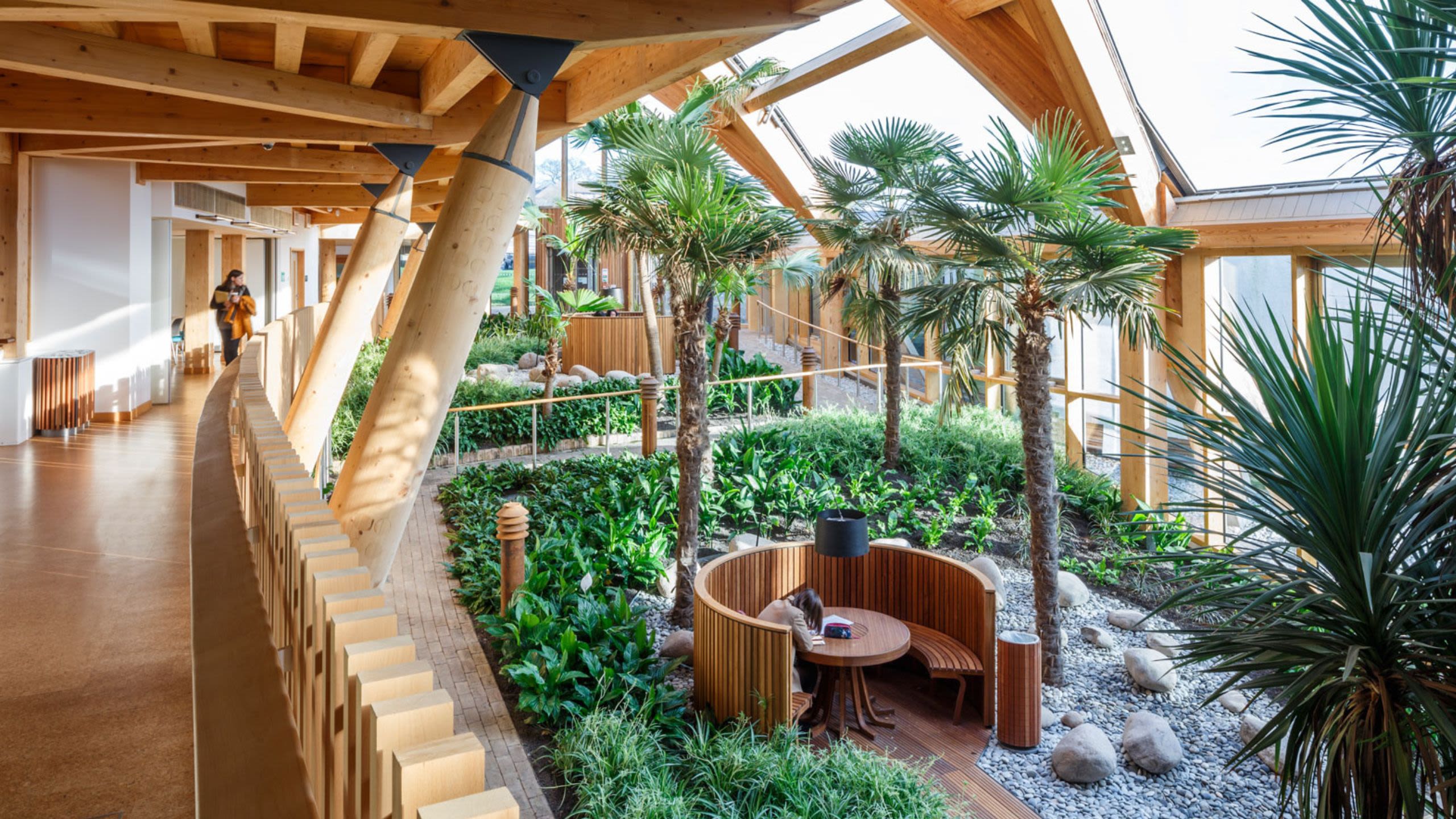
SDG 7: ENSURE ACCESS TO AFFORDABLE, RELIABLE, SUSTAINABLE AND MODERN ENERGY FOR ALL
Research
|
Publication Record |
Method SDSN |
Method Elsevier |
|---|---|---|
|
All articles |
1,614 |
319 |
|
Open Access |
1,082 |
177 |
|
Citations |
37,544 |
7,686 |
|
H-Index |
86 |
44 |
Education
|
SSDN Relevant Degrees |
SDSN Student Engagements |
Elsevier Relevant Degrees |
Elsevier Student Engagements |
|---|---|---|---|
|
893 |
14,404 |
88 |
877 |
Case Study: SDG 7 - Affordable and Clean Energy
Pioneering scientists are exploring the impact of British wind farms on the seabed amid plans to build up to 25,000 more offshore turbines.
The project is examining one of the oldest active offshore wind farms in the UK.
Marine scientists are also comparing the effects of decommissioned oil platforms to get a snapshot of how fossil fuel and renewable energy assets vary in their impacts.
They will discover how the turbines may affect biodiversity, carbon storage, and seabed composition.
Dr Natalie Hicks, from the School of Life Sciences, said: “This research is hugely important. We know our demand for Net Zero energy targets means we have seen an increase in offshore wind farms, so understanding any environmental effects of these wind farms is urgent.”
The Essex team is working with colleagues from wind farm operator Ørsted, the University of St Andrews and the government's marine experts, the Centre of Environment Fisheries and Aquaculture Science (CEFAS).
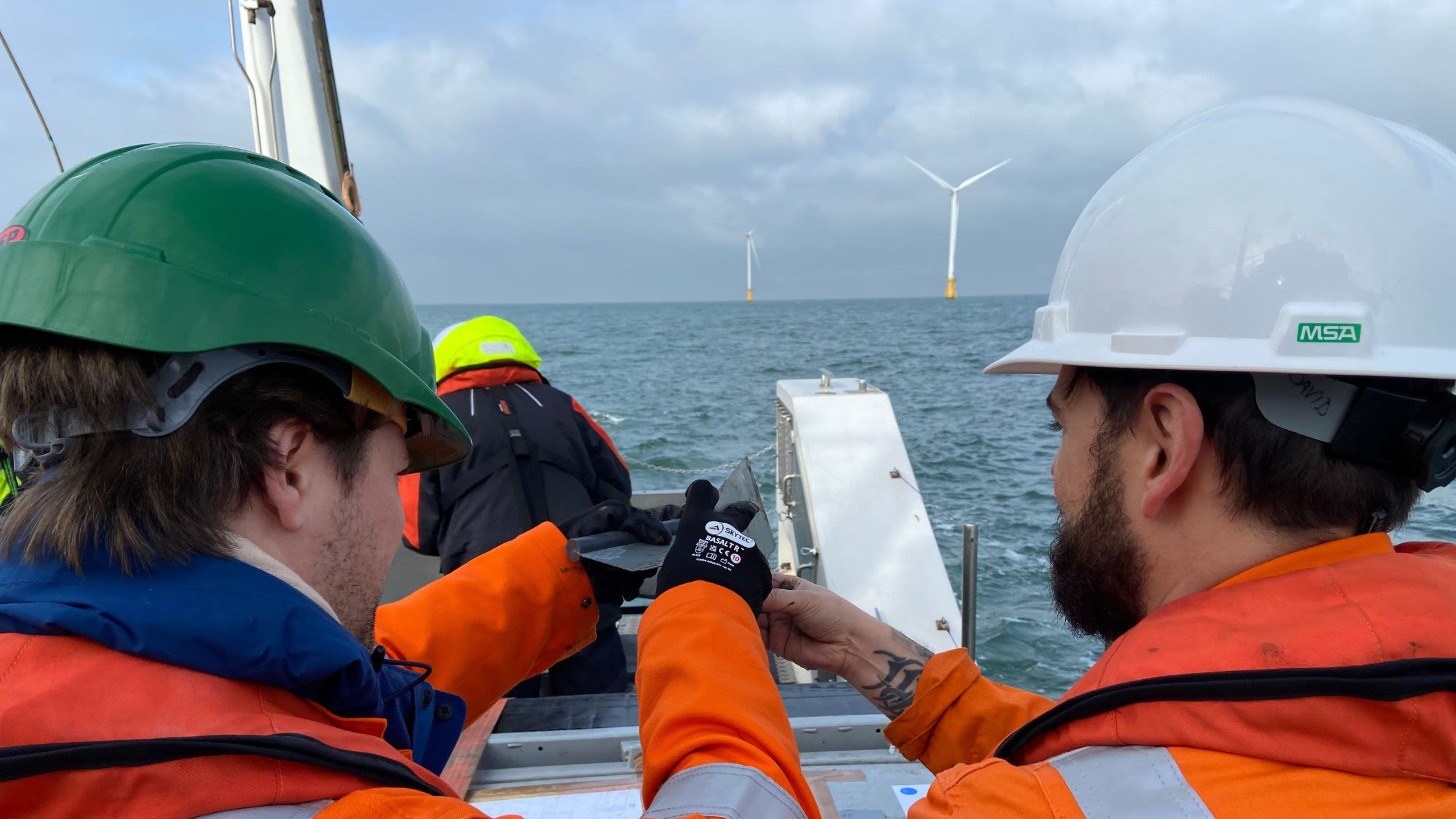
SDG 8: PROMOTE SUSTAINED, INCLUSIVE AND SUSTAINABLE ECONOMIC GROWTH, FULL AND PRODUCTIVE EMPLOYMENT AND DECENT WORK FOR ALL
Research
|
Publication Record |
Method SDSN |
Method Elsevier |
|---|---|---|
|
All articles |
4,291 |
275 |
|
Open Access |
2,787 |
190 |
|
Citations |
69,525 |
6,720 |
|
H-Index |
100 |
41 |
Education
|
SSDN Relevant Degrees |
SDSN Student Engagements |
Elsevier Relevant Degrees |
Elsevier Student Engagements |
|---|---|---|---|
|
893 |
14,404 |
88 |
877 |
Case Study: SDG 8 - Decent Work and Economic Growth
Essex Startups has developed a series of initiatives that reflect the needs of under-represented groups within our start-up community.
Empower, for female founders, BE:ME, for black and ethnic minority entrepreneurs, and Thrive, for those with freelancing ambitions, incorporate interactive workshops with expert external speakers to inspire students and assist in broadening their professional networks.
iTeams, which runs annually, provides students with the experience of working for an external organisation on a tangible, real-world business challenge. Over eight weeks, teams participate in workshops, mentoring, and self-directed work to develop a deeper understanding of the problem and present solutions to overcome it.
Essex Startups' home in the Innovation Centre on the Colchester Campus offers state-of-the-art equipment and space for our community of entrepreneurs to work independently and collaboratively, as well as providing a registered business address and the exposure to established local businesses operating within the building.
Head of Start-up Support Andy Mew said: “We're committed to supporting those individuals within our community who are driven to break the mould and maximise their ambition and creativity to do something different.”

SDG 9: BUILD RESILIENT INFRASTRUCTURE, PROMOTE INCLUSIVE AND SUSTAINABLE INDUSTRIALISATION AND FOSTER INNOVATION
Research
|
Publication Record |
Method SDSN |
Method Elsevier |
|---|---|---|
|
All articles |
5,346 |
71 |
|
Open Access |
3,590 |
46 |
|
Citations |
100,380 |
3,956 |
|
H-Index |
119 |
25 |
Education
|
SSDN Relevant Degrees |
SDSN Student Engagements |
Elsevier Relevant Degrees |
Elsevier Student Engagements |
|---|---|---|---|
|
893 |
14,404 |
88 |
877 |
Case Study: SDG 9 - Industry, Innovation and Infrastructure
The University of Essex teamed up with five organisations as part of a brand-new knowledge transfer programme.
Among the winners of Innovate UK Accelerated Knowledge Transfer funding were farming business G’s Growers and the Colchester-based community organisation, Changing Lives Community Services CIC.
Innovate UK’s Accelerated Knowledge Transfer (AKT) scheme is designed to create short-term collaborations between businesses and knowledge bases, such as universities.
The programme is inspired by the highly successful Knowledge Transfer Partnership (KTP) model and aims to accelerate the evaluation or development of an innovation project or concept, which has the potential for significant impact for a business or organisation.
Other firms which partnered with the University through the AKT programme include mobile-app only bank, Atom bank, planning specialists Iceni Projects and tech security firm Glasswall.
Rob Walker, Head of Business Engagement at Essex, said: “These shorter, more tactical funds help lay the groundwork for broader collaborations, enhance a business’s understanding of collaborative potentials, and provide a low-risk opportunity to innovate new products, services, or concepts."
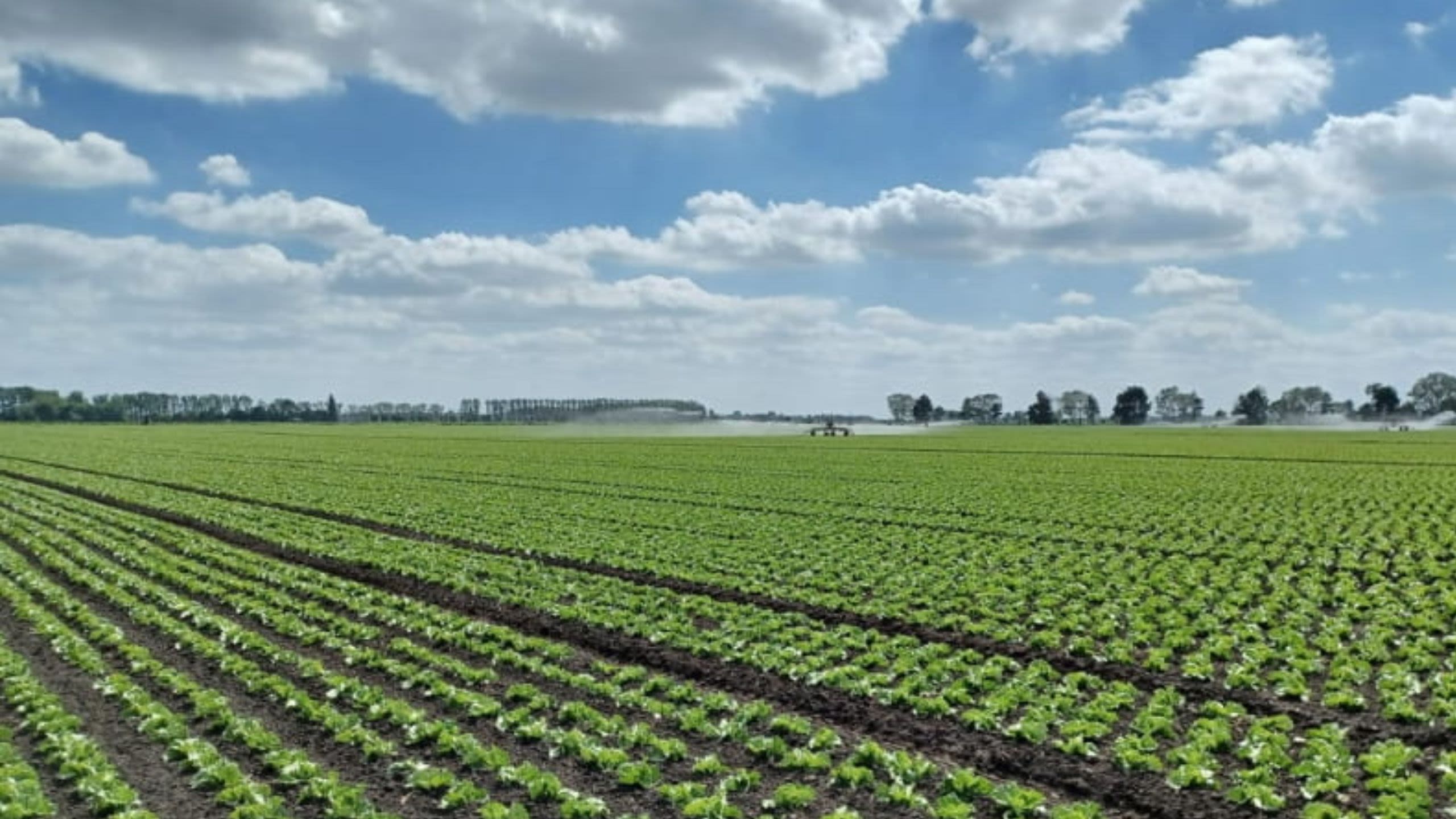
SDG 10: REDUCE INEQUALITY WITHIN AND AMONG COUNTRIES
Research
|
Publication Record |
Method SDSN |
Method Elsevier |
|---|---|---|
|
All articles |
5,291 |
305 |
|
Open Access |
3,612 |
206 |
|
Citations |
89,290 |
4,869 |
|
H-Index |
106 |
36 |
Education
|
SSDN Relevant Degrees |
SDSN Student Engagements |
Elsevier Relevant Degrees |
Elsevier Student Engagements |
|---|---|---|---|
|
893 |
14,404 |
88 |
877 |
Case Study: SDG 10 - Reduced Inequalities
The complex challenges facing our diverse UK coastal areas are the focus of a major new multi-million-pound project led by the University of Essex.
The £2.9 million ARISE project – Advancing Resilience and Innovation for a Sustainable Environment – is one of four projects to receive a total of £14.8 million from the UKRI and the Department for Environment, Food and Rural Affairs (DEFRA).
ARISE will focus on the Norfolk, Suffolk, Essex and Kent coasts, which include communities from England’s highest and lowest levels of deprivation. This coastal region also has more inequalities in health, wellbeing, life expectancy, earnings and education compared to nearby inland communities.
Project Director Professor Gina Yannitell Reinhardt, from the Department of Government, said: “Our coasts provide food, jobs, coastal protection, cultural enrichment and benefits to health and wellbeing.
“However, our UK coastal areas are facing increasingly complex, interrelated challenges from factors like climate change, population and infrastructure pressures and the cost-of-living crisis.
“We want this ARISE Toolkit to be a legacy, offering ways to confront and mitigate these pressures to help strengthen coastal community resilience and our collective ability to thrive after disruption and change.”

SDG 11 to SDG 17
Our annual report on our work to support the United Nations Sustainable Development Goals continues on the next web page covering SDG 11 to SDG 17.

